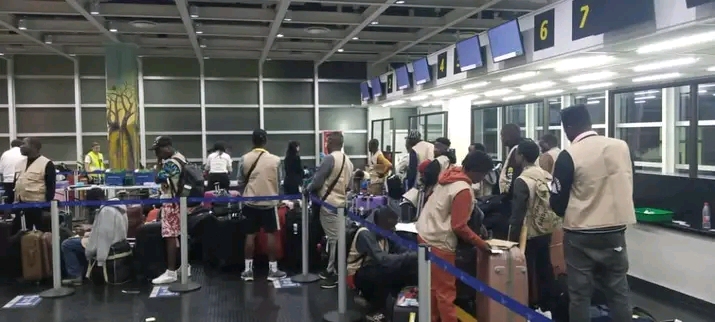By Ollus Ndomu
An Israeli plane landed at Kamuzu International Airport in Lilongwe, Malawi, this morning, marking the initiation of a labor export program aimed at sending Malawian youths to work on farms in Israel.
The move comes as Israeli farms, crucial to the nation’s economy, grapple with a significant loss of laborers following the Israel-Hamas conflict triggered by the October 7 Hamas attacks.
The first flight, carrying 221 youths, departed from Malawi to Israel on Saturday, with the program intending to address labor shortages on Israeli farms.
Malawi’s close ties with Israel over the years have paved the way for this initiative, highlighting the unique relationship between the two nations. Notably, other African countries have taken a firmer stance regarding Palestinian rights.
The Malawian government asserts that the labor export program serves the dual purpose of providing employment opportunities for its youth and generating much-needed foreign exchange.
However, the handling of the deal has faced criticism from rights and governance activists, raising concerns about transparency and fair labor practices.
The economic objectives behind the initiative underscore Malawi’s efforts to address youth unemployment and bolster its foreign exchange reserves. Israeli farms, grappling with the aftermath of the conflict, view the arrival of Malawian laborers as a crucial step towards restoring productivity.
Despite the economic potential, criticism has emerged regarding the transparency of the deal. Rights and governance activists have raised questions about the government’s handling of the program, emphasizing the need for accountability and fair treatment of the participating youth.
As the first group of Malawian youths embarks on this opportunity, the labor export program is expected to remain under scrutiny.
The complex interplay of economic goals, diplomatic relationships, and domestic concerns highlights the multifaceted nature of such initiatives in the global arena.


